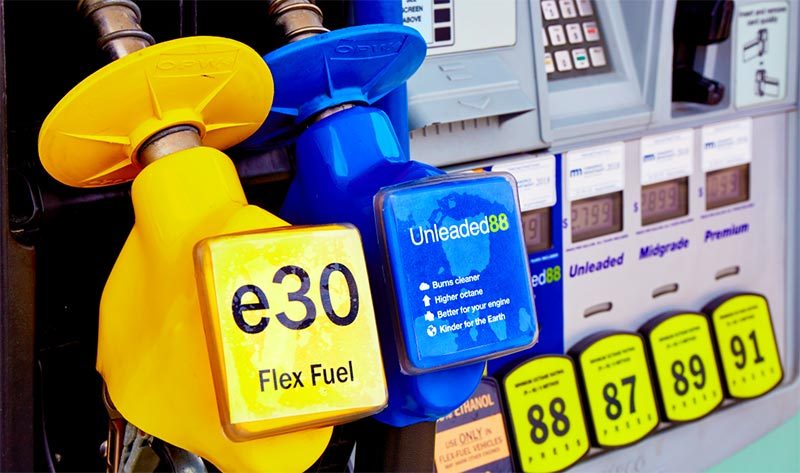SD Farmers Union President Urges President Biden to Look Closer to Home For Gas Price Answers
Forget Saudi Arabia: Biden Should Have Gone to South Dakota

(Reprinted from the Argus Leader July 17, 2022)
President Biden’s visit to Saudi Arabia to beg for more oil seems unnecessary to us—he could have saved himself a long trip by coming to see what is being done right here in South Dakota.
Sky high gas prices are inflicting pain on our budgets and our psyche in part because we feel helpless. However, we can do something about it and it doesn’t require us to get on bended knee to Saudi oil sheiks. Fortunately, we have a home-grown product that has been proven to significantly improve gasoline quality and save billions at the pump. Not to mention, it would dramatically boost our farmers, the environment, public health and the nation’s energy security.
Today, ethanol displaces more than 400 million barrels of oil each year thanks to nationwide use of E10. Transitioning to a national E30 standard—which the U.S. Environmental Protection Agency (EPA) has the statutory authority to do (some say legal obligation)—would reduce U.S. oil imports by one billion barrels per year. That is more than $100 billion staying here at home to improve our economy.
Experts at the U.S. Department of Agriculture and Argonne National Laboratory have concluded that corn ethanol produced with precision agriculture and other conservation practices can reduce greenhouse gas emissions by 50 percent to 76 percent compared to gasoline. Other experts predict that over the next several years, High Octane Low Carbon (HOLC) fuels, such as ethanol, will be classified as ultra-low carbon fuels, surpassing the greenhouse gas benefits of vehicles running on electricity produced from coal and natural gas. Higher octane fuels would also allow automakers to dramatically increase fuel economy and reduce carbon emissions, benefiting both the environment and public health.
For many years now, SD Farmers Union has supported the pioneering work of Glacial Lakes Energy in Watertown which every day proves that HOLC E30 blends work well in the existing fleet. Millions of trouble-free miles have been driven on E30 fuels, and lucky Watertown-area consumers have saved millions of dollars by purchasing a superior, high octane, cleaner burning gasoline.
Octane is the most important property in designing an internal combustion engine—the higher the octane the better. That is why automakers recently urged EPA to encourage the use of HOLC fuels in the existing fleet “as soon as possible”. Ethanol’s octane properties are superior to the only other available octane booster: benzene-based BTEX synthesized from crude oil. BTEX is the most expensive, toxic, and carbon intensive gasoline component. In the U.S., a typical gallon of gasoline contains 20% BTEX and 10% ethanol.
When Congress banned leaded gasoline in 1990, it knew that BTEX posed an even greater threat to public health and the environment, which is why it required EPA to get the “greatest degree of emission reduction achievable” by replacing carcinogenic BTEX with ethanol. EPA has thus far refused to comply. However, with a stroke of his pen, President Biden could direct his EPA Administrator to establish a nationwide E30 “clean octane” standard, which would save consumers billions of dollars in lower gasoline costs, reduce U.S. oil imports by one billion barrels a year—far more than we import from Saudi Arabia and Russia combined—and substantially reduce mobile source toxics and carbon emissions. A major bonus would be the enormous boost to the Midwestern farm economy.
So, Mr. President, the answer to our nation’s fuel challenge lies right here in South Dakota. We hope you can visit us soon to see it for yourself.
Doug Sombke is president of the South Dakota Farmers Union and a fourth-generation crop and livestock farmer from South Dakota.

